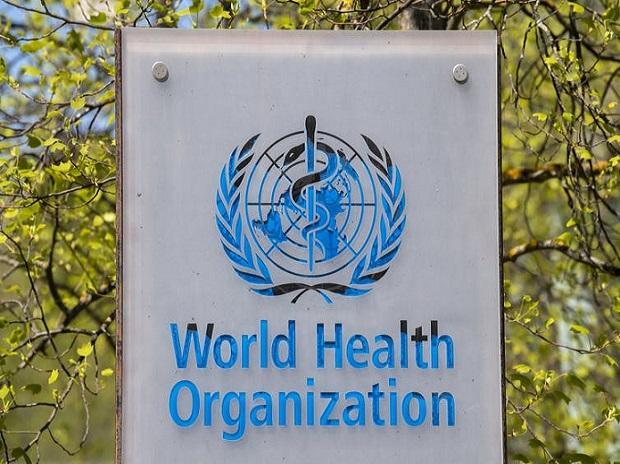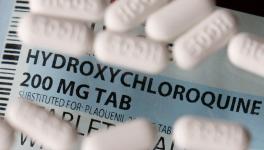WHO to Begin Clinical Trial on New Repurposed Drugs for Severe COVID-19 Cases

Image Courtesy: Business Standard
‘Solidarity’, a clinical trial coordinated by the World Health Organization (WHO), aims to study the efficacy of some drug candidates that can be potentially repurposed for the treatment of severe COVID-19 patients.
Repurposed drugs are those drugs that are already in use for treating some other ailments, the trial aims to study whether some such drugs can also be useful in COVID19.
The Solidarity trial is going to test three drugs in dozens of countries very soon. These drugs are known for dampening inflammation in the body. The inflammation is a response mounted by the immune system of our body in response to fight an infection. Inflammation takes place as a result of several proteins secreting from the immune system in order to fight off an infection.
All the three drugs that the WHO is going to try have been chosen carefully on the basis of the promise they have shown in smaller clinical trials and their easy availability, according to John-Arne Rottingen, the scientific director of the Norwegian Institute of Public Health and the chair of Solidarity’s international steering committee. He was quoted as saying, “You need at least promising signals that some of them will work. And we need study drugs that we can deliver in a broad group of countries.”
It is mentionable here that Solidarity first began back in March 2020 and the trial consisted of antiviral drugs, which can be repurposed for the treatment of COVID-19. The trial enrolled over 11,000 participants from 30 countries who were hospitalised due to COVID-19. The trial included Remdesivir, a combination of drugs used in HIV called the Lopinavir and Ritonavir, Hydroxychloroquine, the malaria drug and interferon. Interestingly, none of these antivirals showed strong efficacy in hospitalised patients. According to Rottingen, “The emerging consensus is that it’s too late. Where the antiviral medications could have a benefit is quickly after a positive test.”
Now, the trial has decided to change the set of drugs and switch over to immune suppressants from antivirals.
The first candidate for the new trial would be Infliximab. This drug is used to treat autoimmune diseases like rheumatoid arthritis and Crohn’s disease. This drug functions by blocking a protein called tumour necrosis factor alpha (TNF- α). The TNF- α is released by cells involved in the immune system named the macrophages. TNF- α is a protein that promotes inflammation.
The second drug to be included in the trial is Imatinib, which is a cancer drug. This is included in the trial with a hope that it will target both the coronavirus and inflammation. Imatinib is expected to block viral infiltration into human cells and reduce the activity of a kind of protein called cytokines, which induces inflammation.
The final drug candidate in the trial would be Artesunate, which is used as an anti-malaria drug. Artesunate is known to have anti-inflammatory effects as well. Rottingen says that each of the drugs would be administered alongside standard care, which includes Dexamethasone used in many countries.
Why These Drugs?
In many cases of severe COVID-19, it has been observed that the body’s own immune system can cause more harm by killing healthy tissues in the fight to kill the infected cells. The immune system unleashes severe attack on the infected cells and in this process, it also harms the healthy cells and tissues, which could be observed in many severe cases of the disease.
Notably, a steroid known as Dexamethasone, which is immune-supressing, has been found to reduce deaths among those ventilated or receiving supplemental oxygen due to COVID-19. Dexamethasone came out as a useful repurposed drug in another clinical trial known as RECOVERY, a UK-based large scale study.
In another large scaled international study known as REMAP-CAP, it was found that drugs that can block the interleukin 6 (IL-6) receptor, can reduce deaths among the critically ill COVID-19 patients. The IL-6 is a key protein involved in the immune system.
Anthony Gordon, an anaesthesiologist at Imperial College London, and a member of the steering committee of the REMAP-CAP, said, “Treatment with Dexamethasone, or with both Dexamethasone and IL-6-receptor blockers, has become standard care in some countries for hospitalised people with COVID-19 who need breathing assistance.”
Gordon also said that Imatinib will be included in the REMAP-CAP and thought that it could help in preventing leakage of fluids in the blood vessels surrounding the lungs. REMAP-CAP will also include Namilumab, a drug that can block another immune protein called GM-CSF. This is hoped to reduce the rampant cytokine activities due to COVID-19 infection.
All these drugs are aimed to tame the immune system. However, researchers would have to be very careful that they do not suppress the immune system to such an extent that patients become vulnerable to other kinds of infections.
Get the latest reports & analysis with people's perspective on Protests, movements & deep analytical videos, discussions of the current affairs in your Telegram app. Subscribe to NewsClick's Telegram channel & get Real-Time updates on stories, as they get published on our website.
























